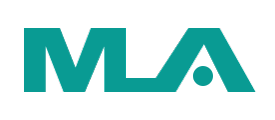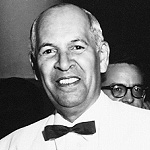
A librarian is a person who works professionally in a library providing access to information, and sometimes social or technical programming, or instruction on information literacy to users.
The American Library Association (ALA) is a nonprofit organization based in the United States that promotes libraries and library education internationally. It is the oldest and largest library association in the world.

The American Theological Library Association (Atla) is a nonprofit, 501(c)(3), professional association, headquartered in Chicago, Illinois, United States. Atla's member libraries and librarians provide resources for scholarly research to tens of thousands of students, faculty, staff, and administrators. The association supports the membership with services and products, including an annual conference, members-only publications and discounts, and professional development opportunities.

The Medical Library Association (MLA) is a nonprofit educational organization with more than 3,400 health-sciences information professional members.

HeinOnline (HOL) is a commercial internet database service launched in 2000 by William S. Hein & Co., a Buffalo, New York publisher specializing in legal materials. The company was founded in Buffalo, New York, in 1961, and is currently based in nearby Getzville, New York. In 2013, WSH Co. was the 33rd largest private company in western New York, with revenues of around $33 million and more than seventy employees.
A teacher-librarian or school librarian or school library media specialist (SLMS) is a certified librarian who also has training in teaching.

A law library is a special library used by law students, lawyers, judges and their law clerks, historians, and other scholars of legal history in order to research the law. Law libraries are also used by people who draft or advocate for new laws, e.g. legislators and others who work in state government, local government, and legislative counsel offices or the U.S. Office of Law Revision Counsel and lobbying professionals. Self-represented, or pro se, litigants also use law libraries.

The following outline is provided as an overview of and topical guide to library and information science:
Robert Charles "Bob" Berring Jr. is a noted figure in law, as a professor, librarian, scholar and researcher.
Richard A. Danner was an American legal scholar, the Archibald C. and Frances Fulk Rufty Research Professor of Law Emeritus at Duke University School of Law in Durham, North Carolina. He held the position of Senior Associate Dean for Information Services and served in various capacities at Duke, starting in 1979, and was appointed Director of the Duke University Law Library in 1981. Prior to working at Duke, Richard Danner served as a law librarian at the University of Wisconsin–Madison, where he received degrees in law and library science.

A special library is a library that provides specialized information resources on a particular subject, serves a specialized and limited clientele, and delivers specialized services to that clientele. Special libraries include corporate libraries, government libraries, law libraries, medical libraries, museum libraries, news libraries. Special libraries also exist within academic institutions. These libraries are included as special libraries because they are often funded separately from the rest of the university and they serve a targeted group of users.

Foster Edward Mohrhardt was a United States librarian. He had a long and illustrious career in library and information science as a scholar, organizer and diplomat, and was listed by American Libraries among "100 Leaders we had in the 20th Century". Mohrhardt is also known for his work to have the United States Department of Agriculture Library re-designated as a national library.
Marianne Florence Scott is a Canadian retired librarian and educator. She has held several positions in her career, the most notable being the third National Librarian of Canada (NLC). She was not only the first woman to be appointed to the position but also the first professionally educated librarian to hold the post.
Elizabeth Moys was born in Wickford, Essex, England. She grew up in Kent, attended Sidcup County School for Girls and graduated from Queen Mary College in London (1949). One of her first jobs was at the Crayford Branch of the Kent County Library Service. Shortly thereafter, she attended the Northwestern Polytechnic School of Librarianship and helped found the School of Librarianship Students’ Association. Following graduation in 1951, she worked as a reference librarian at the Royal Institute of International Affairs (1951) and as an Assistant Librarian at the Institute of Advanced Legal Studies (1952).
Librarianship and human rights in the U.S. are linked by the philosophy and practice of library and information professionals supporting the rights enumerated in the Universal Declaration of Human Rights (UDHR), particularly the established rights to information, knowledge and free expression.
The Association of Christian Librarians (ACL) is a non-profit, professional organization of librarians whose members are evangelical Christians. The stated mission of the organization is to “strengthen libraries through professional development of evangelical librarians, scholarship, and spiritual encouragement for service in higher education.” ACL holds a national conference each year hosted by one of its member institutions. ACL also publishes The Christian Librarian and the Christian Periodical Index, an index of articles and reviews written from an evangelical point of view labeled as "the leading guide to periodical literature from the evangelical perspective" by the Encyclopedia of Library and Information Sciences.

The Virginia Library Association(VLA) is a nonprofit organization whose purpose is "to develop, promote, and improve library and information services, library staff, and the profession of librarianship in order to advance literacy and learning and to ensure access to information in the Commonwealth of Virginia." The VLA is divided into six regions. It maintains the VLA Jobline, a list of jobs available in libraries throughout the Commonwealth of Virginia.
The Sacramento County Public Law Library (SCPLL) is a “public” law library in the capital city of the State of California. In 1891 the state of California enacted statutes mandating an independent law library in every county. Since its inception SCPLL has provided free public access to legal information.

Rosamond Thomas Parma was an American law librarian. She was the first law librarian at the University of California in Berkeley, and the first woman president of the American Association of Law Libraries (AALL). She was inducted into the AALL Hall of Fame in 2010, and into the California Library Hall of Fame in 2016.

A. Mercer Daniel was an American law librarian and the first African American member of American Association of Law Libraries. He worked as a librarian for the United States Department of War, and later went on to serve as a librarian for the Howard University School of Law for more than thirty-five years. Daniel worked to oppose racial discrimination throughout his career and was an activist before and during the civil rights movement.











